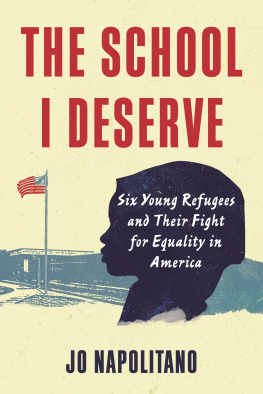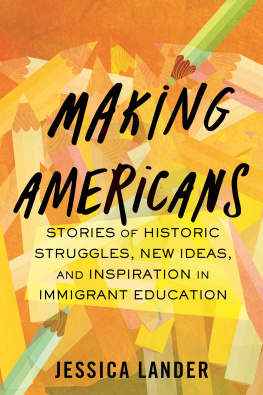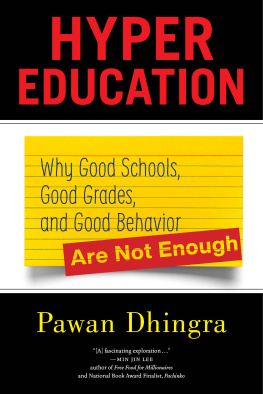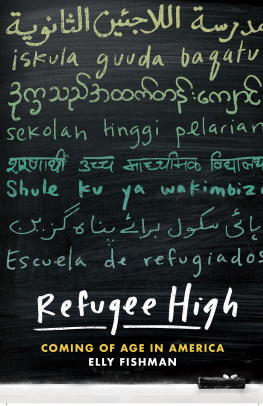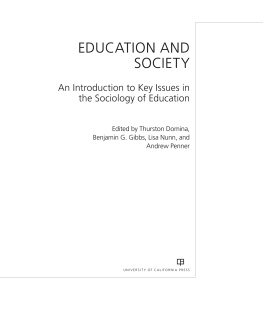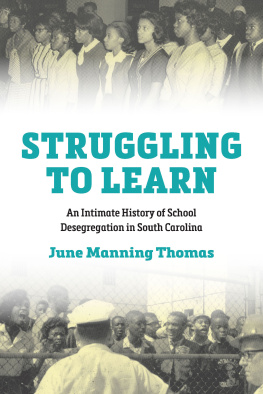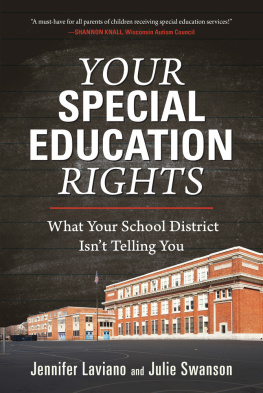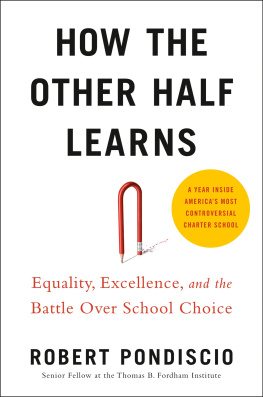Contents
Guide
Pagebreaks of the print version

This book is dedicated to all the children
from foreign lands who call America home
INTRODUCTION
FROM COLOMBIA TO COLUMBIA IN FORTY SHORT YEARS
O f all i learned in the course of reporting this book, one statistic made me gasp: it would take a child born into poverty in Colombia at least three hundred years, or eleven generations, to earn the countrys average income.
There it stood, dead last, a tiny Colombian flag on the bottom of a chart compiled in 2018, looking almost crushed under the weight of the twenty-nine nations that came before it, including China, India, Brazil, and South Africa. The message was clear: to be born destitute in Colombia is to be nearly condemned, the advancement so minuscule in the course of one persons lifetime, that it could hardly be detected, according to the Organisation for Economic Co-Operation and Development, or OECD.
I was born in Bogota, Colombias capital, in 1976, and abandoned by my birthmother at a bus stop a day later. Placed in an orphanage where I was barely fed, I weighed just five pounds at three and a half months old. I likely would have died had I not been adopted by a blue-collar couple from New York.
Id love for the story to stop there. But my father abandoned our family roughly five years later, taking every penny of our savings with him and leaving us deeply indebted. I was raised by a single parent with no college education. Child-support payments were few and medical care an unfathomable luxury in my youth.
Despite these obstacles, I had a far better chance of success in life in America. I had a hard-working and determined mother who fully expected me to live up to my academic ability, no matter our circumstances. But upward mobility would remain a challenge. It would take five generations for a child born into a low-income family in the United States to earn the countrys average income.
The OECD found that many children born into poverty around the world are trapped on the lowest rung of the social ladder. They have less chance to move up and improve their occupational status and earnings as compared to previous generations of their family. Equally troubling, their parents income will be one of the main factors, or the main factor, in explaining their own earnings.
Only one in ten people born to low-educated parents in the countries the OECD examined go on to college, compared to two-thirds of children with highly educated parents. Likewise, about a third of those born to manual workers will become manual workers themselves.
The organization said that upward mobility tended to be better for people born between 1955 and 1975, the year before I came to be. The cure? Education, at least in part.
The organization found that countries that devoted more money to quality education and that targeted those resources to disadvantaged groups had higher rates of what they called education mobility. The same held true for healthcare.
There is nothing inevitable about socio-economic advantage or disadvantage being passed from one generation to another, or floors or ceilings remaining persistently sticky, the report read. Policies can be designed to allow people to move up, especially for those at the lowest rung.
Those born to wealth or at least stability might be tempted to greet the OECDs findings with a shrug. Weve long known that poor people stay poor and rich people stay rich. But the organization found that a lack of social mobility has a long-lasting and widespread impact on entire nations. Not only can it hurt their overall economic growth, but it means that many talents are missed out on or remain underdeveloped for those at the lowest levels.
And, it must be said, no one chooses the country to which they are born, or whether that nation is embroiled in civil war, is plagued with persistent poverty, or ravaged by crime.
Education catapulted me, in just one generation, from one of the lowest castes in the world to the middle class. I attended a solid public school on Long Islandit offered numerous college-level courses, reasonable class sizes, qualified teachers, and well-maintained facilitiesand was more than prepared for college. I won a nearly full ride to Medill at Northwestern University and, in 2016, was named a Spencer Education Fellow at Columbia Journalism School, paid a generous stipend so I could research this book.
I doubt anyone at the orphanage recognized my potential during my stay, given my condition. But that doesnt mean it wasnt there the whole time.
The same, I believe, is true of the impoverished children who arrive in America as refugees, undocumented immigrants, and unaccompanied minors. While they might arrive in the States penniless or nearly so, they are not worthless. They have all the potential one might hope for. All they need is a chance.
CHAPTER 1
THE LONGEST GOODBYES
K hadidja Issa spent the early morning hours of August 16, 2016, consumed with worry. By the time her lawyer pulled up to her familys modest apartment at 7:00 a.m. to retrieve her, she was wide awake, just as she had been all night. The eighteen-year-old Sudanese refugee, who had moved to Lancaster, Pennsylvania, in the fall of 2015, had no idea what the day would bring. Never before had she seen the inside of a courtroomnot in America and not in her home country. But there she was on that cloudless summer morning, about to embark on a ninety-minute journey to Easton, Pennsylvania, to tell a federal judge why she was suing her local school district just ten months after arriving in the States.
The sinewy teen was too fidgety to eat, but, dutiful as she was, she scrambled eight eggs for her mother and five younger siblings and set the meal aside in a chipped ceramic bowl so that breakfast would be ready when they woke a half hour later. The task complete, she headed back upstairs to smooth her hair and dress for the occasion. Eager to impress the court, she picked out her finest clothes: a pair of dark blue jeans faded at the thigh, a crisp, white long-sleeved shirt a touch too big for her narrow frame, and, to the amusement of her attorneys, a spotless pair of gold-colored high-top sneakers. She tucked her pale blue headscarf behind both ears and headed for the door, trying to remember what her mother, Mariam, had been telling her all week: Just listen to the lawyers. Theyll know what to do.
The day had just begun but already had broken a dozen years of tradition. As the eldest daughter in a Sudanese family, Khadidja was tasked with caring for her younger brothers and sisters and had spent every morning for the past twelve years waking them from sleep and corralling them for breakfast. As soon as she was able, she took to carrying the smallest among them in a sling on her back. By the time the family arrived in Lancaster, only baby Howa was young enough to be secured this way, her legs straddling Khadidjas slender waist as she swept the floor or washed dishes. From the front, it often looked as though the teen had sprouted two tiny feet from her sides.
Though she enjoyed her place in the family hierarchya sideways glance from Khadidja could stop a fight in an instantshe aspired to be more than a caretaker. She dreamt of becoming a teacher or a nurse, and she learned from the adult refugees and volunteers who visited her family during their initial months in the States that such a journey could begin in only one place: her local public high school. Khadidja had no doubt she would be admitted. All three of her school-aged siblings were accepted with ease. One by one, they filled out the required paperwork, winced through their immunization shots, and tried their best to pull together the necessary school supplies.

